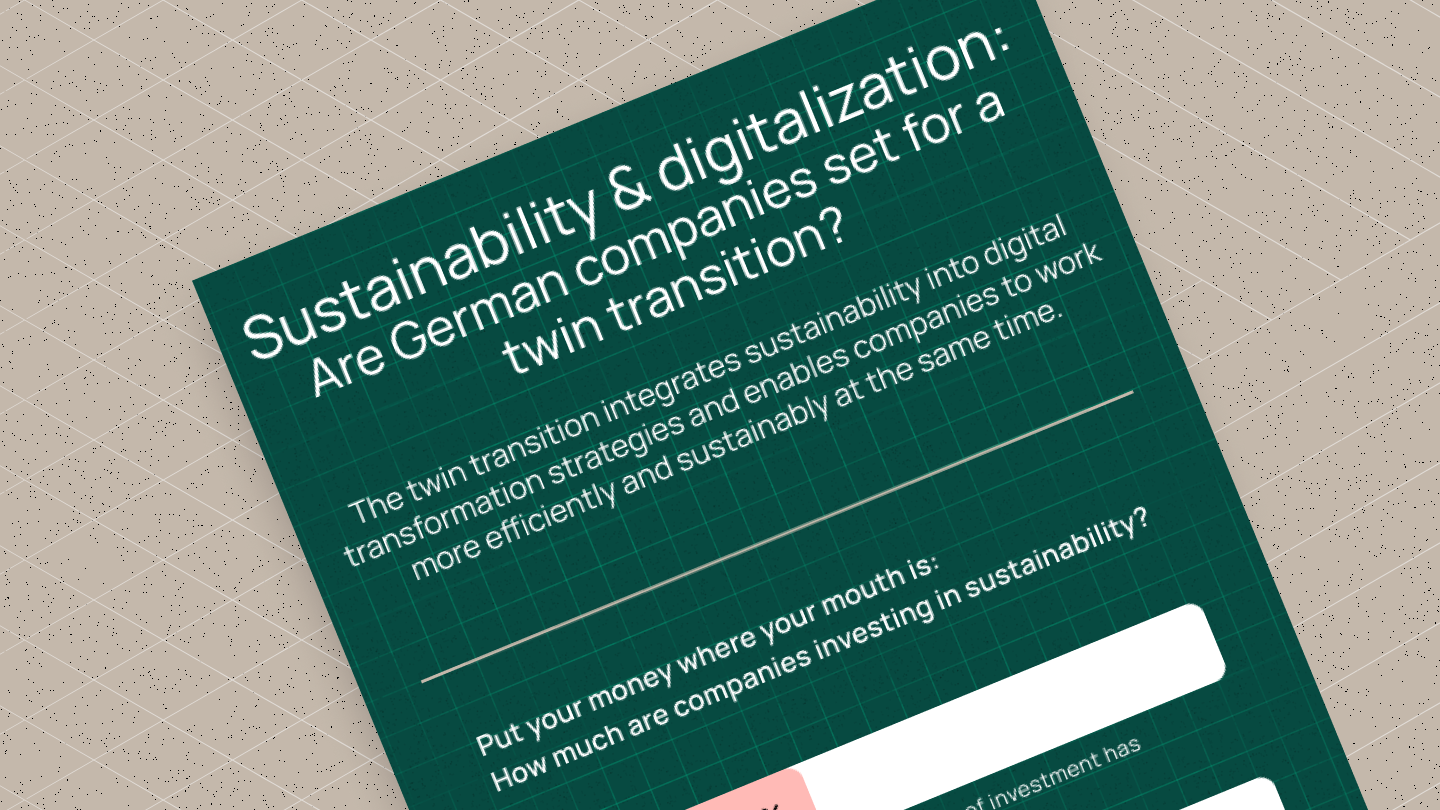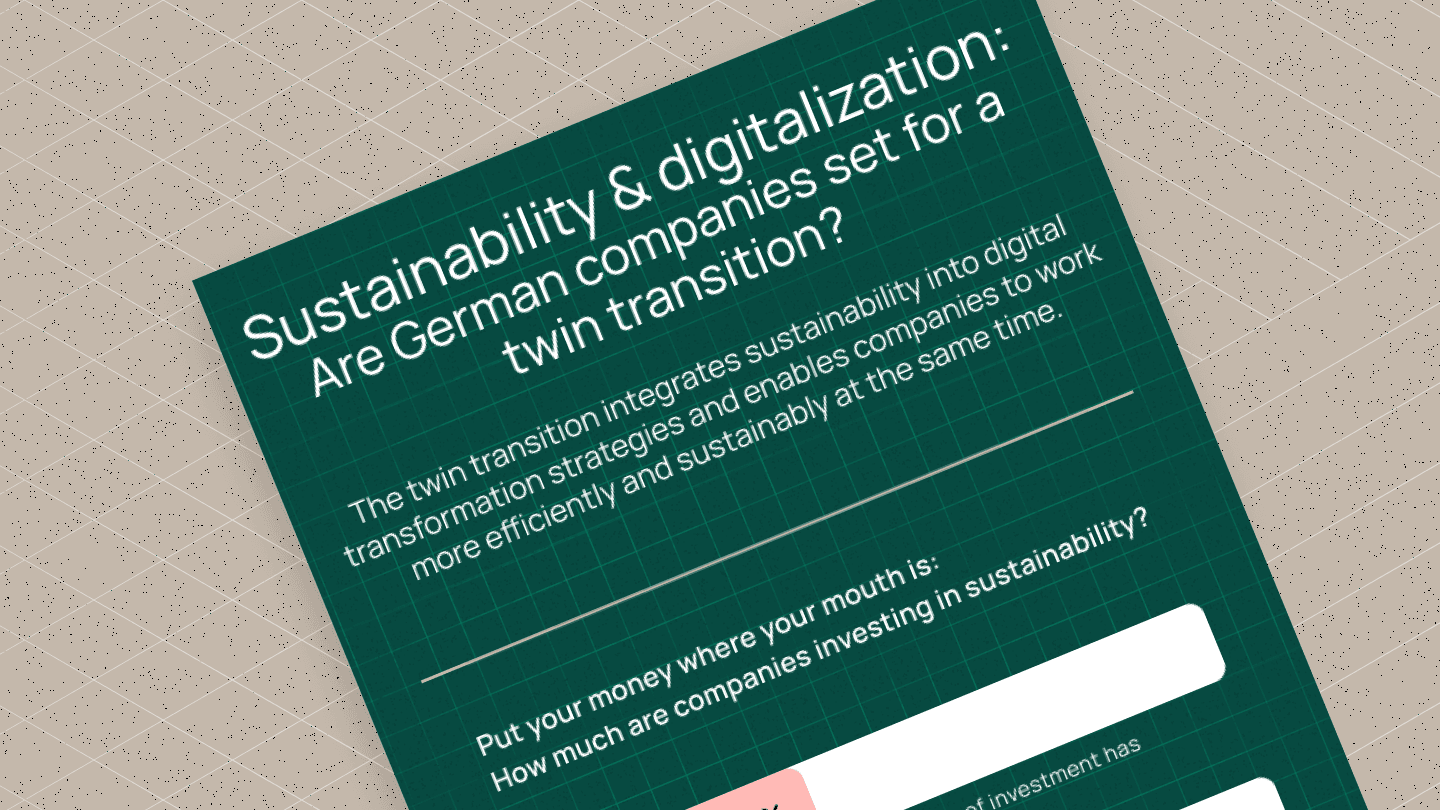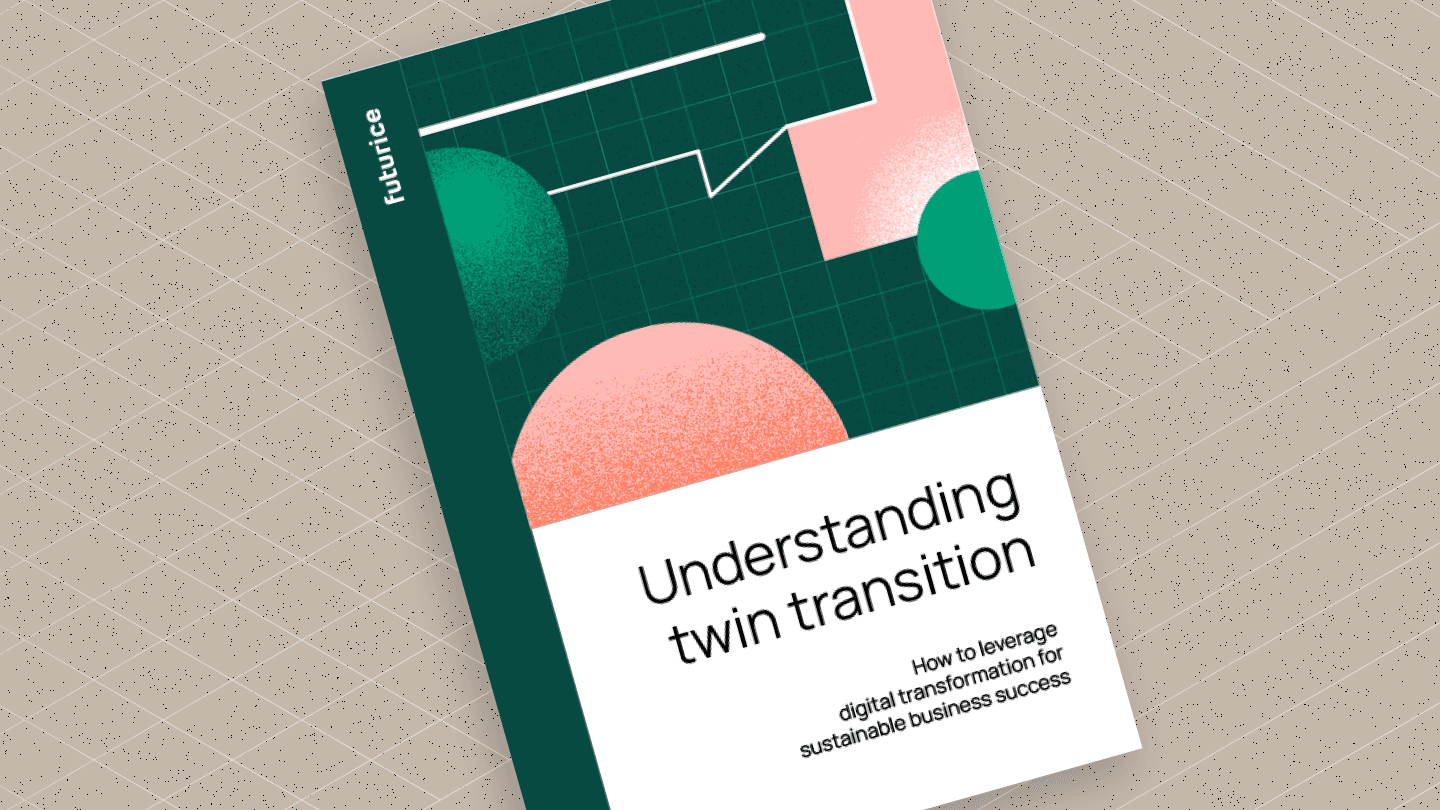How ready are German companies for twin transition?
Forward-thinking companies are increasingly embracing the concept of twin transition, combining their digital development and sustainability efforts to benefit from the synergies. But how well prepared are companies in Germany to capitalize on this opportunity? We recently surveyed a group of more than 250 automotive, IT and healthcare executives in Germany to understand the situation. Here’s what we learned.

Faced with challenges related to the development of their digital capabilities as well as growing sustainability needs, companies are increasingly choosing to combine their efforts in these two areas. Known as twin transition, this approach has many benefits – after all, digital solutions can help make operations more efficient and productive, and less wasteful.
But if we focus on the German business landscape specifically, how ready are companies here to make use of those benefits and get started with twin transition?
Over the past few years, the German economy has had plenty of crises to deal with, and in the midst of all the tumult, many important topics have fallen by the wayside – sustainability and digitalization among them. The digitalization index published by the information service of the German Economic Institute, for example, suggests that most industries and regions in Germany are now digitally stagnant.
Are digital transformation and sustainability seen as high-priority issues today?
German companies know that they have to master digital transformation fast in order to remain competitive, and that the topic of sustainability is becoming increasingly urgent – both in terms of new legislation and the future of our planet. But at the same time, they don’t seem to consider these two areas among their top priorities.
We recently surveyed more than 250 executives from the automotive, IT and healthcare sectors in Germany to see what they currently view as their biggest challenges. Digitalization and sustainability were not among the top three – even though added focus on sustainability and digital transformation could certainly help them find solutions to the shortage of skilled workers and the effects of the energy crisis.
In line with that mode of thinking, investments in these areas have typically remained on the same level over the past few years, or even declined.
This is an alarming development, considering that especially among the younger generation of professionals, areas like social responsibility and environmental and climate protection are becoming increasingly important factors when applying for work. Future success is also closely tied to sustainability. On the one hand, customers are increasingly demanding sustainable products and services, and they want to see the receipts, too. And on the other hand, politicians are responding to the need for more sustainable business practices with corresponding laws and regulations.
Get our survey results to learn more about the value of twin transition
In our survey, more than a quarter (26%) of respondents have not yet recognized that digital transformation and sustainability can be managed together to generate beneficial synergies – from financial security to employee motivation, and from all-new business models to customer satisfaction, just to name a few.
This is just one angle of our findings. Our study offers a great way to get the big picture and learn more about how the German business landscape could benefit from twin transition. The infographic of the study results is available here. If you’d like to dive a bit deeper into the topic of twin transition in general, I strongly encourage you to check out our recent publication, Understanding twin transition.
The topic can be complex and getting started is not necessarily easy – but at Futurice, we are certain that the benefits are worth the effort. We are happy to outline what twin transition can mean for your company, and support you on your journey to a more secure and successful future.
 Sven-Anwar BibiManaging Director, Germany
Sven-Anwar BibiManaging Director, Germany

